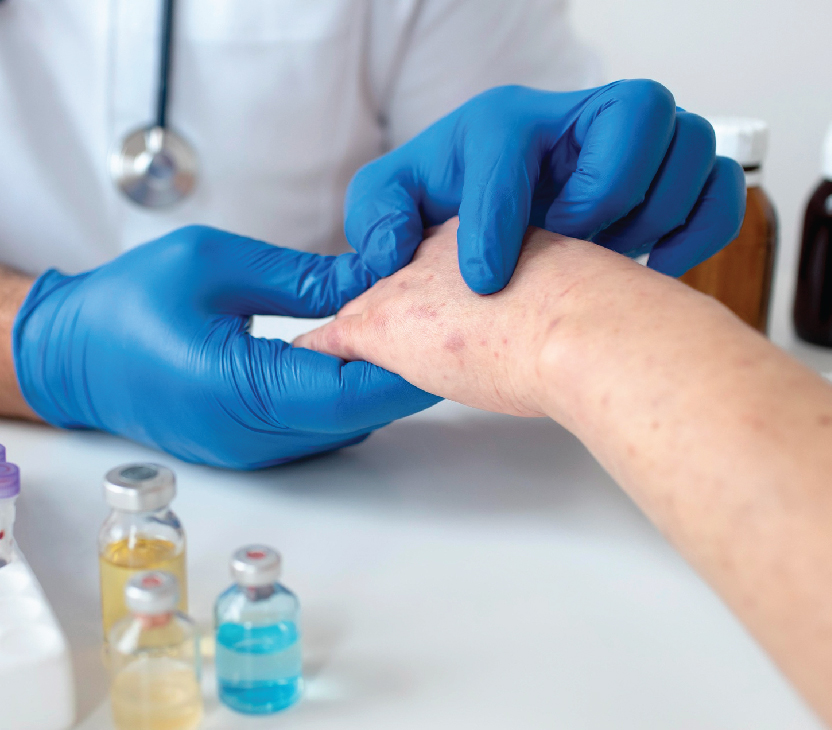Comprehensive Dermatology & Skin Care Services in India
Dermatology Services at Thangam Cancer Center
Skin Care Treatment in India
Skin Cancer Screening & Care
Reconstructive Dermatology
Dermatology

Department of Dermatology
At Thangam Hospital, the Dermatology Department is committed to promoting skin health and enhancing appearance through advanced care. From diagnosing and managing conditions affecting the skin, hair, and nails to addressing cosmetic concerns, we utilize state-of-the-art diagnostic tools and therapeutic procedures to ensure personalized and compassionate treatment for every patient.
Common Conditions Treated
- Acne and Rosacea
- Eczema (Dermatitis)
- Psoriasis
- Fungal and Bacterial Skin Infections
- Viral Skin Infections (e.g., Warts, Herpes)
- Hair Loss (Alopecia)
- Nail Disorders
- Skin Allergies and Rashes
- Skin Cancers (Basal Cell Carcinoma, Squamous Cell Carcinoma, Melanoma)
- Pigmentation Disorders


